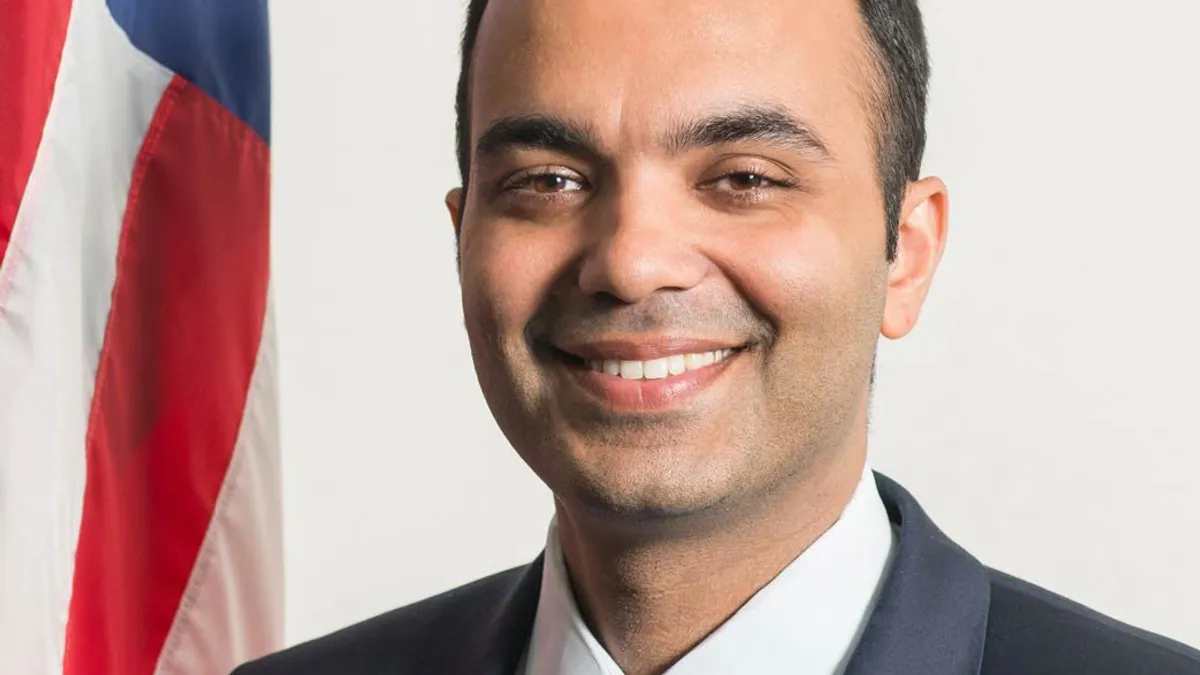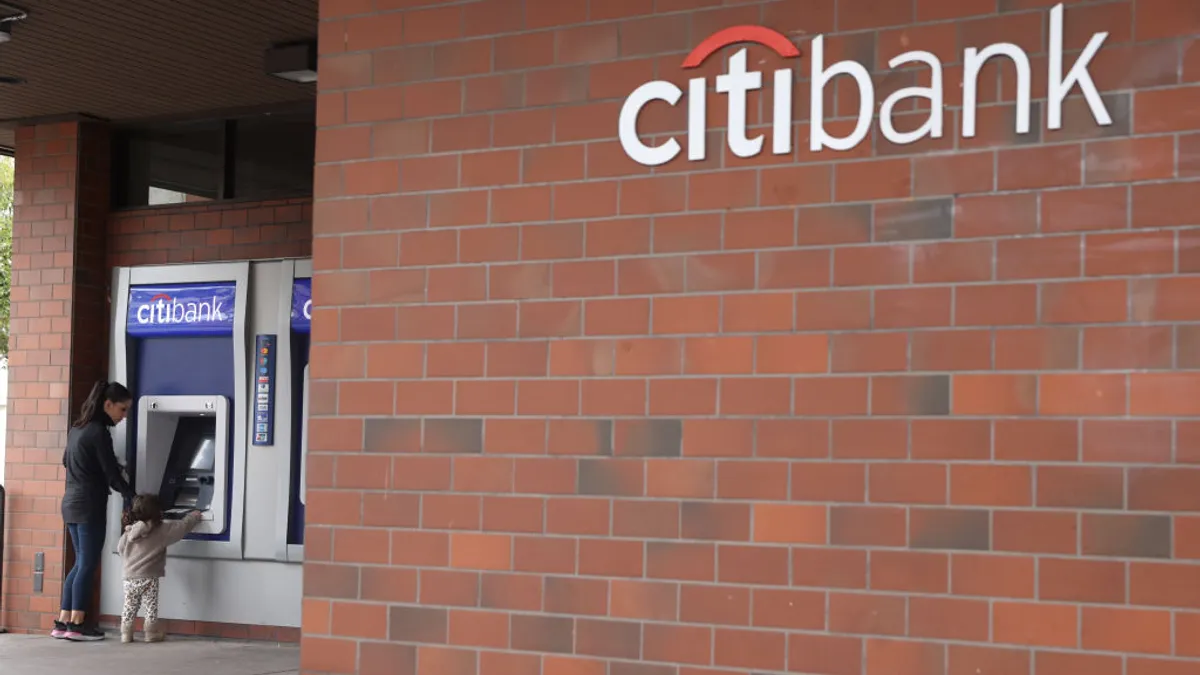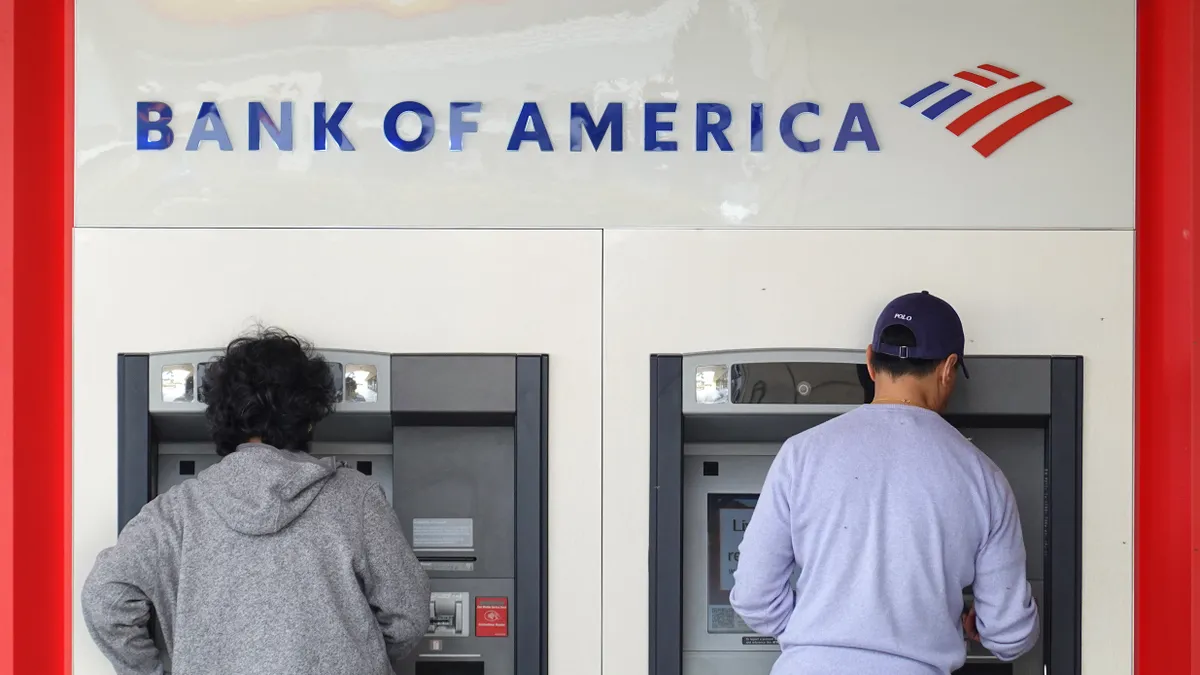A rule proposed Wednesday by the Consumer Financial Protection Bureau could reduce — to between $3 and $14 — the overdraft fees charged by banks with more than $10 billion in assets.
Under the proposed rule, banks would classify overdraft charges as extensions of credit, making them subject to the same consumer protections as credit cards under the Truth in Lending Act. That would force banks to disclose an annual percentage rate for such charges. Overdraft services — at a charge of roughly $35 per instance — now equate to an APR of about 16,000%, CFPB Director Rohit Chopra told reporters on a call Tuesday.
The proposed rule gives banks a choice: They could calculate an average of what it costs to cover an overdraft, show that math to the CFPB and charge overdrawing customers that break-even amount. Or banks could charge a benchmark amount suggested by the CFPB. The agency is suggesting $3, $6, $7 and $14 as potential amounts, based on data it has gleaned from various financial institutions. The CFPB is opening those benchmarks up for comment.
"Today, we are proposing rules to close a longstanding loophole that allowed many large banks to transform overdraft into a massive junk fee harvesting machine,” Chopra said in a statement Wednesday.
The changes proposed Wednesday aim to further reduce the $9 billion per year the CFPB estimates banks count in revenue from overdraft fees — although that figure is down from $12.6 billion in 2019.
The turning point arguably came in 2021 and 2022, when banks such as Ally, Capital One and Citi eliminated overdraft fees, and Bank of America reduced them from $35 to $10. Months later, the Biden administration set what it has called “junk fees” in its sights — although banking trade groups have argued the president has unfairly lumped overdraft protection into that category.
“For too long, some banks have charged exorbitant overdraft fees — sometimes $30 or more — that often hit the most vulnerable Americans the hardest, all while banks pad their bottom lines. Banks call it a service — I call it exploitation,” President Joe Biden said in a statement Wednesday.
Trade group reaction
Consumer Bankers Association CEO Lindsey Johnson said the CFPB’s proposal fails to highlight banks’ innovation in developing alternatives to overdraft fees in the past several years.
“The Bureau is not only late to the party with this misguided proposal, but this one-size-fits-all approach from Washington threatens to undo years of progress while also freezing innovation and competition,” Johnson said in a Wednesday statement seen by Banking Dive.
The CBA launched a website this month meant to promote "the value of overdraft services, and why government mandates are misguided."
Johnson said the CFPB should pull Wednesday’s proposal, which she calls “just the latest in a myriad of unnecessary and costly regulations by this Administration that seems guided by political polling, rather than by sound policy created by what should be independent agencies.”
Overdraft fees account for roughly 2% of annual revenue in the banking industry and 4% of net income, the CBA said in its press release.
American Bankers Association CEO Rob Nichols called Wednesday’s proposal an “attempt to demonize and mischaracterize highly regulated and clearly disclosed bank fees for a service that surveys consistently show Americans value and appreciate.”
Nichols cited a Morning Consult survey that found 77% of respondents who paid an overdraft fee in the past year were glad their bank covered the overdraft, rather than returning or declining payment. Less than one-quarter of respondents, meanwhile, said it’s unreasonable for banks to charge an overdraft fee.
The proposal “fails to fully acknowledge and appreciate the significant voluntary changes many banks have already made to their overdraft programs, including the growing availability of accounts that do not charge overdraft fees,” Nichols said.
“The proposal would upset this competitive market, restricting access to overdraft with a government-imposed price cap,” he said. “In an effort to score political points, the CFPB is seeking to eliminate a valuable service and push consumers who need overdraft protection into the hands of less-regulated, more-costly alternatives.”
The ABA, Independent Community Bankers of America and America’s Credit Unions wrote Chopra this month, urging him to convene a small-business review panel to comment on the rule. The CFPB this week said it wouldn’t do that because the rule would only apply to large banks and not to credit unions. The 175 institutions it would affect account for two-thirds of overdraft fee revenue, the CFPB said. The St. Louis Fed, by contrast, put that proportion at 80%, by 2017 figures.
ICBA CEO Rebeca Romero Rainey, in a statement Wednesday, said her organization is “encouraged” that institutions with less than $10 billion in assets were left out of the proposal.
“This critical exemption recognizes that community banks offer specialized overdraft products and services that are not commoditized but customized to meet the needs of their customers and local markets,” she said.
ICBA “will strongly advocate tiered regulation for community banks over $10 billion in assets to mitigate the impact of the rule on their customers and communities,” she added.
What’s next
The CFPB’s public comment period closes April 1. A final rule is expected in October but wouldn’t take effect until Oct. 1, 2025, because of TILA requirements.
But the proposal — and its agency of origin — face a potential threat from another source: The Supreme Court is set to decide this year a case that calls into question the constitutionality of the CFPB’s funding structure. If the court agrees, the future of the bureau and its rules stand at risk.
Still, the proposal garnered praise from some consumer advocates.
“Overdraft fees are not so much a useful service as a lucrative profit center that’s largely underwritten by the most economically vulnerable consumers,” Carter Dougherty, a spokesperson for Americans for Financial Reform, said in a statement seen by The New York Times. “This reform is a step in getting banks back to providing good service and away from gotcha fees.”























